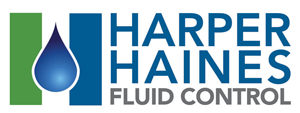Harper International, Article_6279, Breach Control Valves
When Pipes Fail: Using Breach Control Valves to Reduce Flood Risk and Enhance Fire Suppression
Since 9/11, property owners in New York and other potential terrorist targets have reexamined their buildings for safety. In a catastrophic terrorist attack, water systems for firefighting are especially vulnerable to breach.
High rise buildings and other large properties rely on complex systems to distribute fluids for fire protection, air conditioning, and water and waste services. Pipes occasionally will fail due to mechanical fatigue. For example, a materials defect or a hairline fracture may go undetected for years under normal conditions. But when a surge condition places mechanical stress on a defective segment of your system, that pipe may give way or breach.
Property owners and managers need to assess the losses that can result from an unexpected breach in your building’s water system. You will discover major risks and techniques to manage them.
What Is Your Risk?
Each property presents unique problems in event of a pipe breach.
Wherever water circulates, property damage can be widespread with flooding. For example, there may be extensive water piping for air conditioning near computer installations or complete computer data centers, where a breach may damage expensive, mission-critical computers. Mechanical equipment rooms (MERs) present extreme safety hazards in the case of flooding, due to the presence of high-voltage power substations.
Most disquieting is the risk that a pipe breach could impair your ability to suppress a fire. Commercial and industrial buildings depend on roof-level water tanks to provide the initial supply of water to sprinklers and hose racks until the fire department arrives. The fire-reserve water is fed from the tank down through fire standpipes. Without a breach valve, a breach in one of the main standpipes can drain the water from the fire-reserve tank. Such a catastrophic failure took place at the World Trade Center on 9/11, impairing fire suppression and costing lives.
Insurance Policy
How do your protect your property from these risks? Design engineers have begun to incorporate breach control valves into various water systems so that pipes will be automatically shut down before flooding gets out of control.
A breach control valve is a hydraulic sensing device that detects abnormal water flow conditions. A reach valve is set to measure water flow or pressure, and it can work with single directional or bi-directional flows. Most critically, the breach control valve requires no external actuators or electricity to work. They are self-powered, using hydraulics to open and close. This is essential, because in a fire or other disaster the power may be knocked out.
According to Tom Kuehnel at Harper International, “The breach control valve concept would be considered normal in submarine systems, but they are a fairly new concept on land-based plumbing systems.”
“A breach valve is really an insurance policy that minimizes the impact of unplanned water discharge,” says Kuehnel, “You hope you never need it, but if you do, it must be totally reliable and properly calibrated.” Kuehnel cited the case of a corporate high-rise in midtown New York that recently suffered severe flooding damage that could have been mitigated with breach valves.
Water System Integration
“You don’t just buy a breach valve off the shelf,” notes Kuehnel, “Each breach valve needs to be selected and calibrated for its specific location and purpose. At Harper International, we help engineers incorporate breach valves optimally into their water systems.”
Harper International installed its first breach control valve system in 1999 to address a piping fatigue problem in a closed-circle HVAC water system. Since then, Kuehnel says that building engineers in New York have begun to incorporate breach valves into new designs as well as retrofitting old system.
Learn More
Harper International is the exclusive factory representative in New York, New Jersey, Rhode Island and Connecticut for Cla-Val automatic control valves, esteemed for their reliability and lowest total cost of ownership.
125 Old Gate Lane, Milford, CT 06460
Telephone: 203.693.3740 * Fax: 203.547.6092

